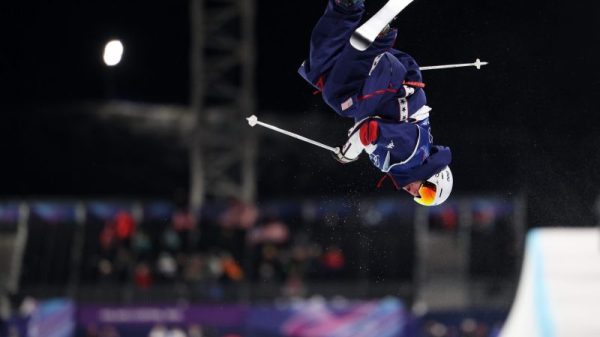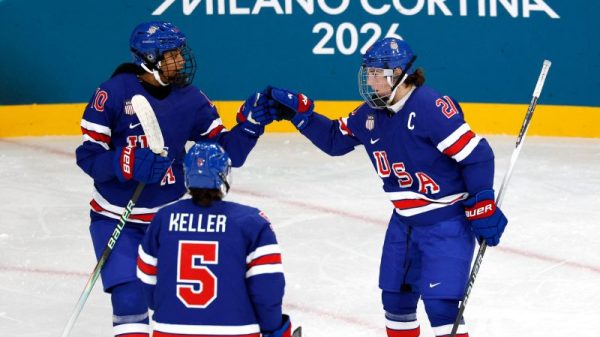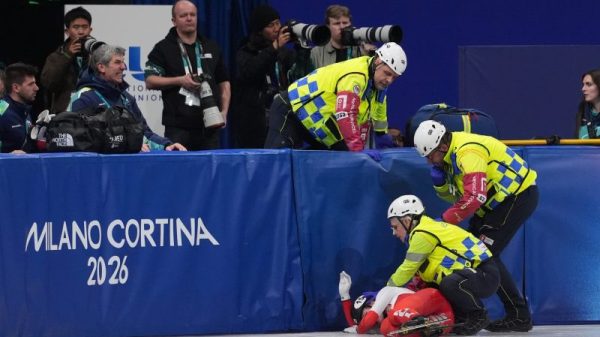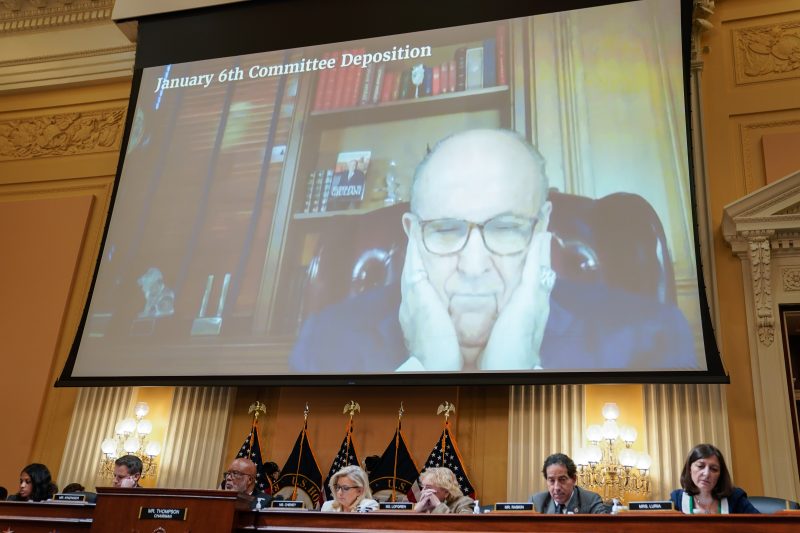To hear the judge in his defamation case tell it, Rudy Giuliani might have made a calculation: Whatever financial penalties he faced for failing to make records available in that case — and those penalties are looking as if they could be substantial — they were a worthwhile risk to avoid something even worse.
Judge Beryl A. Howell in a ruling Wednesday found Giuliani liable for defaming two Georgia election workers, Ruby Freeman and Wandrea ArShaye “Shaye” Moss, whom he falsely accused of tampering with votes in the 2020 election.
Howell said she could only conclude that Giuliani “intentionally and willfully” disregarded his obligation to preserve records to be turned over in the case, a decision that resulted in her ruling against him without a trial. A subsequent trial will determine how much money Giuliani will be forced to pay.
And Howell conspicuously pointed to a potential reason for Giuliani’s behavior.
“Giuliani’s preference may be due to the fact, about which he has made no secret, that he faces liability, both civil and criminal, in other investigations and civil lawsuits,” Howell wrote.
She added, “Perhaps, he has made the calculation that his overall litigation risks are minimized by not complying with his discovery obligations in this case.”
The implication: Giuliani might have decided to hide things that could be used against him, with an eye toward the kind of criminal prosecution he now faces alongside former president Donald Trump and 17 others in Fulton County, Ga. (Giuliani was also listed as an unindicted co-conspirator in Trump’s federal indictment.)
If that’s true, Howell’s ruling could reverberate beyond the bounds of the civil defamation case.
But what was Giuliani possibly hiding?
Howell’s ruling cites a few examples of Giuliani communications that were turned over by other witnesses but not, for whatever reason, by Giuliani himself.
(Giuliani has cited the government’s seizure of his electronic devices in 2021 and their data supposedly being “wiped” as a reason for not producing more discovery materials, but the judge rejected that explanation. She cast doubt on the “wiped” excuse and wrote that Giuliani, a seasoned litigator and former U.S. attorney, must have known he would need to preserve these materials and should have done more. A Giuliani spokesman did not respond to a request for comment Thursday but Wednesday called Howell’s decision “a prime example of the weaponization of our justice system, where the process is the punishment.”)
In one instance Howell cited, fellow Trump lawyer Christina Bobb turned over a Dec. 4, 2020, text thread in which Giuliani asked Bobb to send security footage of the Georgia election workers to Rusty Bowers (R), who was then speaker of the Arizona House.
In another, one of Giuliani’s assistants turned over a Dec. 7, 2020, email from a Fox News editor to the media email address of Giuliani’s consulting firm. The editor was seeking comment after a key Georgia official debunked Giuliani’s claims about the election workers.
Howell’s ruling also refers to a Dec. 7 text thread involving Giuliani, Trump adviser Boris Epshteyn and others. In it, Trump is described as looking for “examples of ‘election fraud’ that we’ve alleged that’s super easy to explain” but that don’t “necessarily have to be proven.” Giuliani volunteered the security footage as something that could be used.
All these examples involve efforts by Giuliani relating to Freeman and Moss or show he was confronted with evidence against his claims. But he didn’t produce the materials.
The “super easy to explain” text is a particularly striking example of the kind of thing Giuliani could have wanted to avoid sharing — not just because of the implications for the civil case but for the criminal ones.
The text, which first came to light last month, could be read to suggest that Trump advisers weren’t terribly interested in the truth of their claims, which could matter in trying to prove the effort was corrupt. And while we don’t know whether Giuliani’s suggestion actually made its way to Trump, the latter would go on to repeatedly cite the Georgia election workers in a way that speaks to the potential reach of Giuliani’s actions, now ruled defamatory.
The last communication Howell cites as being turned over, but not by Giuliani, is also notable. It’s a private Instagram message between him and Bobb, but it’s not from the post-election period. Rather, it’s from Aug. 17, 2022. Howell’s ruling says only that the message was “concerning plaintiffs” — Freeman and Moss. The text of the message is redacted in court filings.
That date would place the message well after Giuliani’s devices were seized in 2021 and also after Freeman and Moss sued, in December 2021. It matches the date Giuliani appeared before the Fulton County grand jury.
These are just the examples laid out by Howell of things we know Giuliani didn’t produce, because others did. But Howell suggests that the volume of potentially relevant communications not turned over could be significant.
She notes how Bobb testified that Giuliani, after the election, was “getting like 10,000 emails a day,” and how Giuliani ally Bernard Kerik testified that Giuliani and his team were receiving voter-fraud reports around this time from “a hundred different sources.”
“Little to none of those estimated thousands of emails from ‘a hundred different sources’ have been produced to plaintiffs by Giuliani,” Howell wrote.
Howell writes that the sum total of Giuliani-produced materials, beyond 193 initial documents, “is largely a single page of communications, blobs of indecipherable data [and] a sliver of the financial documents required to be produced.” She also casts his odd recent statement ceding the argument that his statements about Freeman and Moss were false and defamatory as a desperate and legally flawed attempt to avoid further discovery in the case.
It’s impossible to know precisely what will remain hidden due to, in Howell’s estimation, Giuliani’s deliberate decision to flout his obligations. But what we can say is that his apparent decision not to comply could come at a large (to be determined) cost that he must have known could be the price of his lack of transparency.
His willingness to risk that may bode ill for what lies ahead for him and others.



























